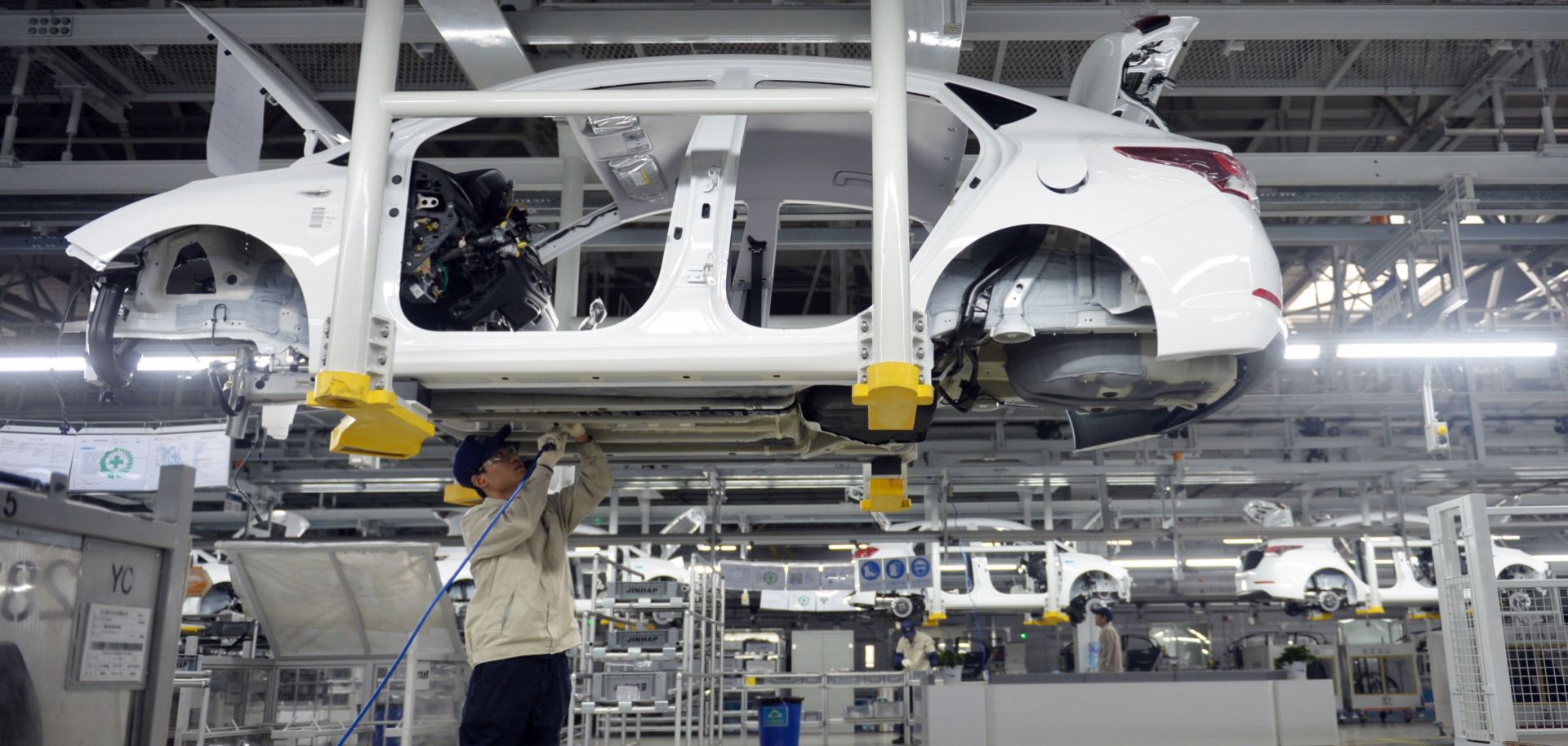ASSESSMENTS
U.S. Auto Tariffs Would Deliver a Particularly Painful Sting to South Korea
Oct 8, 2018 | 09:00 GMT

This photo taken on February 21, 2017 shows a worker in a Hyundai factory in Cangzhou, in China's northern Hebei province. The factory is the South Korean manufacturer's fourth in China and has an annual capacity of 300,000 cars. (STR/AFP/Getty Images)
(STR/AFP/Getty Images)
Highlights
- Although South Korea renegotiated its free trade agreement with the United States this year, it failed to secure protection from threatened U.S. tariffs on automobiles.
- While South Korean auto manufacturing on U.S. shores provides the sector with some insulation, with its reliance on the U.S. market, tariffs would have sweeping effects. However, South Korea's smaller market for imports means that it cannot hope to eliminate the trade deficit.
- South Korea is likely to offer some sort of side agreement capping auto exports, while also dangling the prospect of stepping up its purchases of U.S. goods and its investment in the country.
Subscribe Now
SubscribeAlready have an account?
